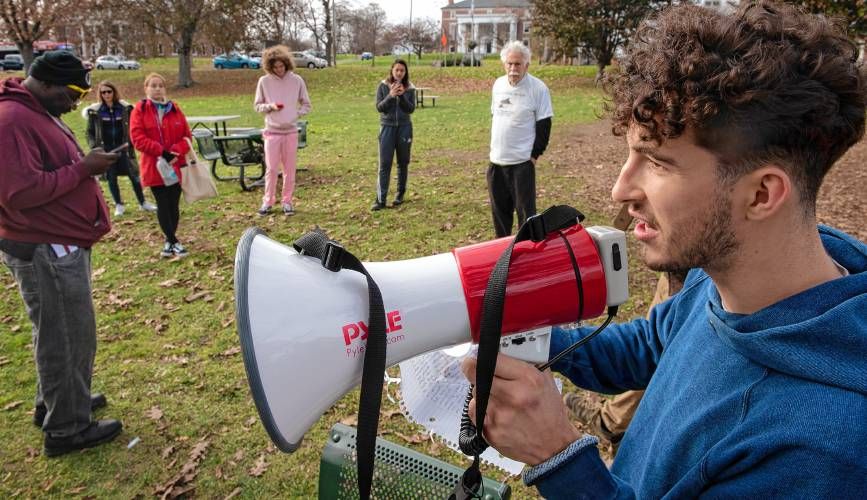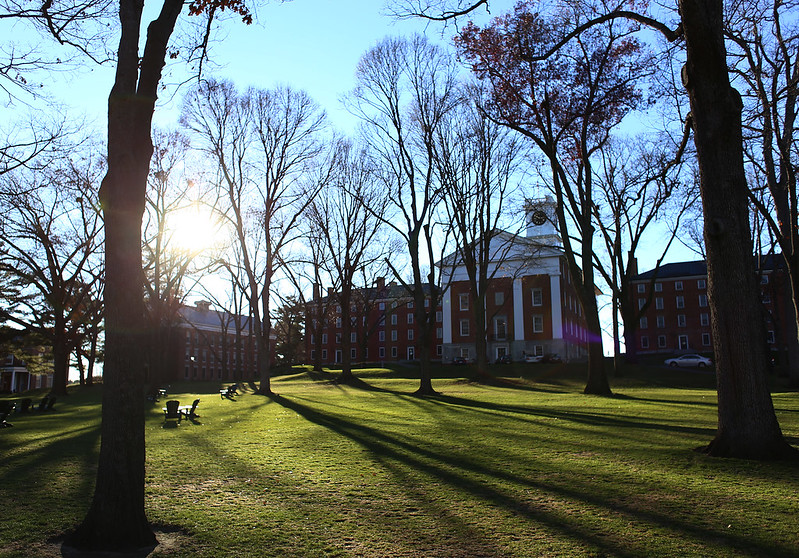On November 17th, 2023 dozens of students stood proudly in Downtown Amherst Center rallying for House Bill 2824. This bill would put a tax on specific private university endowments. Amherst College is the second-best liberal arts college in the country and is known for its 3.34 billion dollar endowment. This isn’t including the $439 million of the Shakespeare Memorial Library’s endowment as well. The UMass Amherst YDSA, Amherst College YDSA, Hampshire College YDSA, PHENOM, students across the Five Colleges, and even Pioneer Valley residents, have led the charge in holding private Universities accountable to pay their fair share by taxing their endowments. It has been statistically proven that a higher education expands the opportunity for an individual to earn a higher-paying job significantly, however, what happens when this is becoming financially out of reach for many?

States like Massachusetts have given less and less funding to their state universities, including UMass Amherst. State institutions have since adapted to these budget cuts by increasing tuition every year for students, overcrowding, and over-admitting new students, which has caused a housing crisis. State universities are the backbone of thriving economies and help efforts in keeping residents in the state, yet students are struggling financially to keep up. However, private universities continue to be richer than ever, with their endowments reaching sky-high records since the pandemic.
As of 2023, Harvard’s endowment is nearly $51 billion. On the other hand, for over 70,000 students, the entire University of Massachusetts system has a measly $1.4 billion. Likewise, Amherst College has a roughly $3 billion endowment. This is more than twice the amount of the entire UMass system, which serves roughly 70 times more students. With 1970 students, that pencils out to $1.9 million per student.

The endowment tax, if passed, would be pocket change for Harvard and other universities with endowments over $1 billion. This is not to mention the negative effects of many such universities on their surrounding cities as they cause gentrification, divide neighborhoods, and drain municipal services while paying no property taxes. In light of this, taxing universities’ private property should be considered, though this policy is a first step towards making Massachusetts’ elite colleges live up to their professed goal of serving the public good.
This means there would be a 2.5% tax on private universities’ endowments that exceed $1 billion. All of these proceeds would be placed in a new fund named the Educational Opportunity for All Trust Fund, which serves a purpose towards the expenses of higher education, early education, and child care for low-income and middle-class residents of the Commonwealth. As of 2022, 14 private institutions in Massachusetts have endowments of over $1 billion. This means that local colleges like Smith College, Amherst College, Mount Holyoke, and others would be taxed in attempts to solve the student debt crisis within the state of Massachusetts, specifically the Pioneer Valley.
- Mickey White
